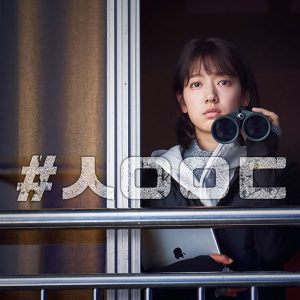When it comes to cinema, the medium is inherently reflective of human thought. Thus, when the minds behind the camera falter, the film itself will inevitably carry those flaws. Such is the case with "I Refuse to Be Your Friend" (hereafter referred to as "I Refuse"), a cinematic effort marred by problematic underpinnings. What's the issue? It's akin to adulterating motherly love with melamine, potentially turning audiences into metaphorical infants with swollen heads.

"I Refuse" is enveloped in a shroud of illogicality. The film is riddled with inconsistencies, providing ample fodder for a full episode of a roast show. Some of these inconsistencies stem from the limitations of the filmmakers, such as a perpetually charged mobile phone. Others arise from lapses in professional ethics, like a nineteen-year-old obtaining a marriage license in the year 2000. Yet, there are instances that point to a deeper ideological rot, which we shall explore further.
Following her high school graduation, nineteen-year-old Li Qington discovers she is pregnant during a routine hospital visit. Strangely, neither she nor her friends, nor even her mother, exhibit any signs of panic or concern. This casual acceptance of an "unwed pregnancy" at such a young age is treated as perfectly normal and reasonable. This laissez-faire approach isn't merely a lack of directorial skill; rather, it's symptomatic of a troubling mindset.
Why include a storyline involving an unwed teenage pregnancy? This dramatic choice serves two purposes: first, it facilitates a reconciliation between Li Jinchu, Li Qington, and Chen Junhe. Second, it capitalizes on the emotional appeal of a single mother and a scapegoat father to elicit tears from the audience. In other words, the creators' primary focus is on box office success. For them, the inclusion of a nineteen-year-old unwed pregnancy is a means to an end, a tool to convert tears into profits, regardless of its toxicity. They confidently administer this "poison" to their target demographic—high school seniors.
The tacit acceptance of a nineteen-year-old unwed pregnancy can be seen as an ideological poison. However, Li Qington's decision regarding her future and her child represents an outright affront to contemporary women.
Regarding her future and her child, Li Qington makes no real choice. She states, "His [Wu Zhixun's] life is his own, my child is mine, I can choose the life I want (to have the baby)." As we know, she ultimately withdraws from university to give birth to Li Jinchu.
I attempted to uncover the internal justification for Li Qington's decision within the film. The only plausible explanation lies in a statement made by Li Wusi: "As long as the family is together, nothing else matters." This reveals the filmmakers' perspective: when faced with the choice between personal aspirations and motherhood, bearing a child is the correct path. The notion that reproduction and family are the default settings and expected roles for women is presented without debate or question. This is nothing short of an insult to women, a disdainful glance cast by male creators upon female characters.
In essence, "I Refuse to Be Your Friend" isn't about Li Jinchu having an epiphany about maternal love and returning home. Instead, it aims to steer Li Qington and others like her back into the domestic sphere, blending the "choice" made by Li Qington into the "milk of motherly love" like melamine, transforming more viewers into metaphorical infants with swollen heads, compelling them to retreat back home.
 七弟电影
七弟电影
![韩国丧尸片《#活着/ALIVE》百度云网盘资源[HD-MP41.7GB][完整版][高清韩语中字]-七弟电影](https://gaga.pochou.com/wp-content/uploads/2020/06/活着-电影剧照-5-300x300.jpg)

